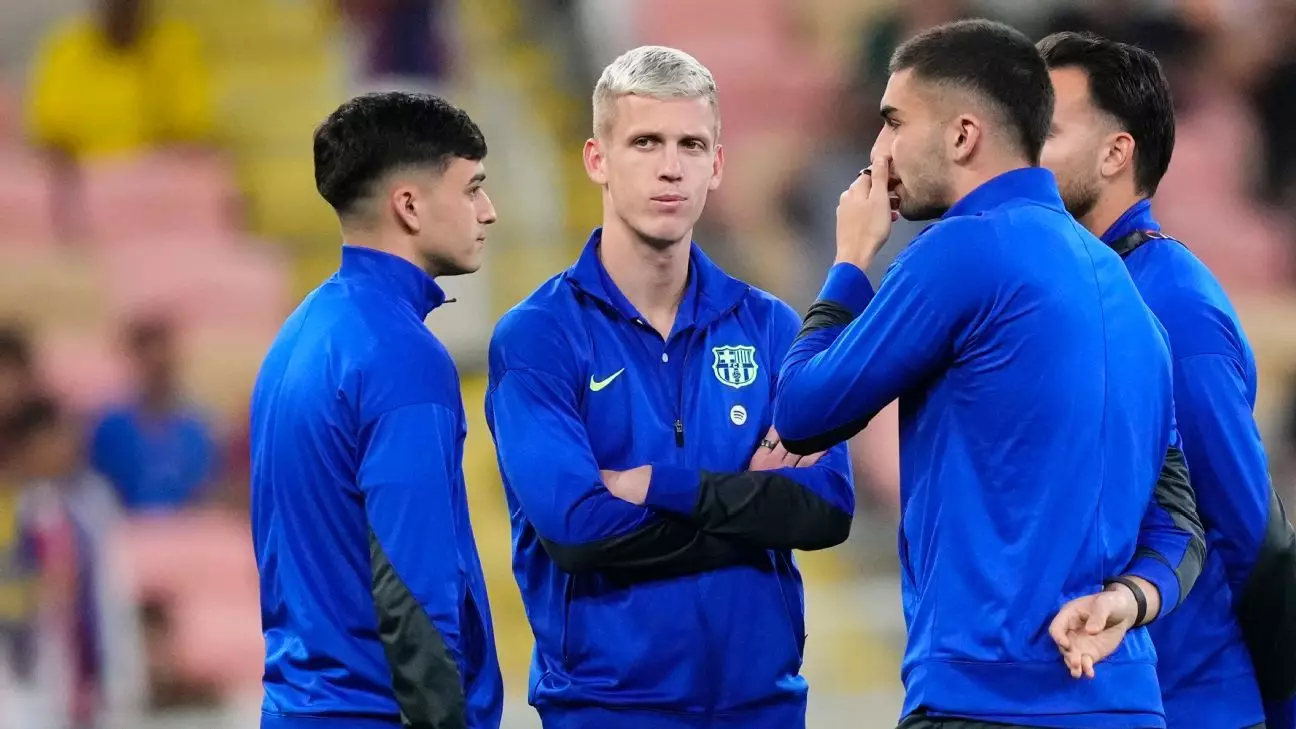The world of football is often fraught with controversies, particularly surrounding financial regulations and player registrations. A prominent case that has recently stirred debate is the situation involving FC Barcelona and its temporary player registrations amidst a backdrop of criticism from Athletic Club. This event not only sheds light on the intricacies of financial fair play but also raises questions about governance in Spanish football.
Background on the Registration Controversy
FC Barcelona found itself in precarious waters when it missed a critical deadline that would have validated its compliance with LaLiga’s financial regulations. Specifically, the club had until December 31 to demonstrate its adherence to financial fair play rules, a set of guidelines established to ensure teams operate within their financial means. Despite the oversight, the Catalan giants managed to appeal successfully to the Spanish Sports Council (CSD), allowing players Dani Olmo and Pau Víctor to receive temporary registrations. This unexpected intervention illustrates the complexities clubs can encounter in navigating financial compliance within the league.
Athletic Club’s president, Jon Uriarte, responded vocally against the CSD’s decision, labeling it “grotesque.” His statements highlight a broader concern regarding the perceived inequalities within Spanish football governance. Uriarte expressed that such provisional measures from a perceived political body could undermine the integrity of LaLiga and the footballing ecosystem overall. His comments suggest that clubs are trapped between the dual pressures of striving for competitiveness while contending with ambiguous regulatory frameworks.
Athletic Club’s frustration emphasizes a recurring theme in football—larger clubs may benefit disproportionately from leniencies. The sentiment shared by Uriarte reflects a yearning for consistency and fairness within football governance. Notably, this isn’t an isolated instance. It exemplifies how financial hurdles and administrative decisions can impact the sport, raising concerns about transparency and accountability in league operations.
Barcelona’s Defense and the Role of Governance
In defense of the decision, Barcelona’s sporting director Deco urged critics to focus on their own clubs, asserting that each organization has its unique challenges to contend with. This response brings to light an essential divide in football—the varying circumstances under which clubs operate. Deco’s comments attempt to shift attention away from criticisms towards a more introspective approach, suggesting that foundational issues are complex and common throughout the league, necessitating a collaborative solution.
Furthermore, the aforementioned episode illustrates the tug-of-war between club autonomy and regulatory mandates. While governing bodies like LaLiga and the RFEF strive to maintain financial discipline, the CSD’s intervention raises questions. Can an external body effectively manage the nuanced financial dynamics private clubs navigate? Deco’s assertion—that the governing bodies must maintain clarity in their decisions—implies the need for a more robust framework that benefits all parties involved.
For players like Dani Olmo and Pau Víctor, these bureaucratic ambivalences create an inherently challenging environment. While Athletic’s Iñaki Williams acknowledged that he is “happy for both of them,” acknowledging the distress players endure, he proposed a call for unity to improve the sport’s reputation. This perspective is crucial as it emphasizes that players, fundamentally, just want to engage in the sport they love. However, the ongoing turmoil can lead to sentiments of division among clubs and fans alike, which Williams noted as potentially tarnishing the image of Spanish football.
As this saga unfolds, it serves as a catalyst for discussions surrounding financial regulations and their execution in football. LaLiga president Javier Tebas, expressing his own astonishment regarding the CSD’s ruling, hinted at a need for a more cohesive stance within Spanish sports governance. His comments about the “complicit silence” from major stakeholders underscore the need for dialogue and transparency regarding regulatory practices.
The situation at Barcelona holds lessons not only for the Catalan club but for other football entities grappling with similar financial pressures. It underlines the necessity for an equitable approach in regulation enforcement, ensuring that all clubs, regardless of size and prestige, navigate the same challenges with fairness and clarity. As the Spanish football community reflects on this incident, the hope remains that the discourse will ultimately lead to a more stable and just system, preserving the integrity of a beautiful game cherished by millions.


Leave a Reply